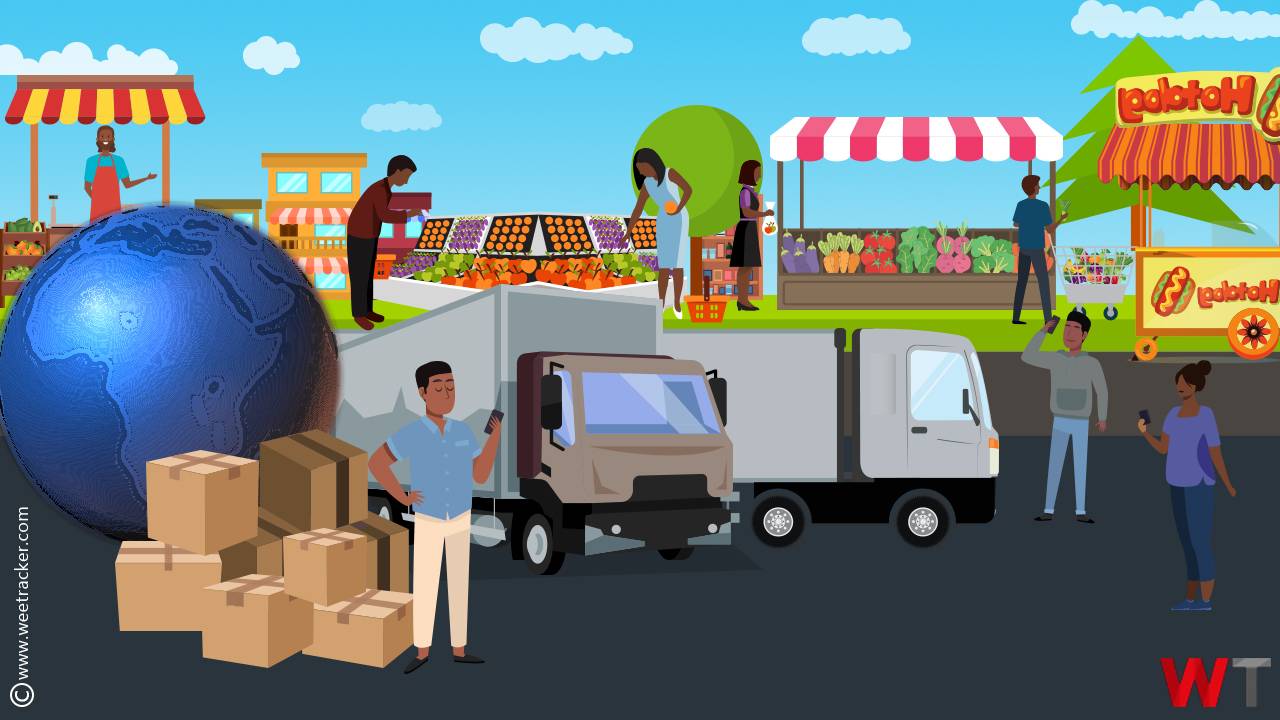Cash-Strapped MarketForce Turns To Crowdfunding To Save Its Business

One of the notable players among a rising crop of startups digitising the expansive corner shop retail business in Africa is taking matters into its hands after facing fundraising setbacks that shook its business. The Kenyan B2B e-commerce company, MarketForce, is raising USD 1 M in a crowdfunding exercise to support its operations, offering the public the opportunity to own a piece of its business.
“We are excited to launch this small community funding round with a maximum raise of $1,000,000 so that our community, including avid supporters, partners and customers, can invest in the company and become part owners early in our journey,” a blog post on MarketForce’s website reads.
MarketForce will accept a minimum investment of USD 1 K from interested parties, on the same terms as its Series A round closed last year, the company says. The crowdfunding campaign, in which MarketForce’s valuation is pegged at USD 120 M, is hosted on Capitalize, a new brand started by renowned crowdfunding service Wefunder, and is only available to accredited investors.
“The work we are doing is ambitious and exciting, and it will be more and more impactful as we grow. We’d love to have you join us in building the future of retail distribution in Africa,” says Tesh Mbaabu, CEO of MarketForce, who, together with Mesongo Sibuti, co-founded the startup in 2018. While the campaign urges the public to come aboard, it also issues a reminder that success is far from guaranteed as startups are risky.
The relative success of African startups that have taken this alternative path in the past would offer some encouragement. In 2020, Eversend, the Ugandan-born neobank led by Stone Atwine, raised over USD 1 Mn through crowdfunding from some 994 investors in exchange for 8.94 percent of the business which continues to gain ground.
Additionally, Kenyan logistics startup Amitruck completed a variation of crowdfunding known as ‘crowdlending’ in March 2021. The startup raised EUR 140 K (~USD 170 K) from 400+ investors to fill a temporary working capital gap. Per the terms, Amitruck committed to paying a 5 percent interest to all investors in exactly 12 months. MarketForce would be looking to pull off similar to tide over.
The startup, with operations in Kenya, Tanzania, Rwanda, Uganda and Nigeria, is building for Africa’s USD 1 T informal retail segment, which accounts for about 80 percent of household trade in sub-Saharan Africa but is beset by inefficiencies in supplies procurement and the earnings pipeline.
MarketForce’s proposition is centred around enabling informal traders to order goods for next-day delivery directly from its merchant’s super-app RejaReja. Traders are also able to access goods on credit based on the history of their transactions and credit profiles.
A Call to Community
In its pitch to woo potential backers, MarketForce says it has onboarded over 250,000 merchants and nearly 200 brands onto the platform, growing gross merchandise value by 9x to USD 128 M between 2021 and 2022. “Driven by our core e-commerce operation, our net revenue grew to USD 2.5 M in 2022, achieving positive gross margins across our operations in H1 2023 and with a clear path to profitability,” the company says.
E-commerce startups operating the business-to-business (B2B) model of serving small retailers in the last mile have been an attractive destination for investor dollars pouring into African tech over the past couple of years. According to Partech data, such firms in Africa raised USD 638 M in total in 2022, an increase of more than 124 percent from the previous year which also saw a few mega raises.
However, B2B e-commerce businesses like MarketForce, despite receiving significant capital, have been forced to shrink back as a result of new dire funding realities and challenges in the markets they serve. MarketForce, like other notable players, such as Twiga, Alerzo, and Copia, have resorted to scaling back significantly, resulting in the nixing of certain operations and layoffs that impacted hundreds of jobs.
Yet more misfortune struck MarketForce as its plans were thrown in disarray after certain unnamed VCs that had committed funds in its USD 40 M Series A round backed out of the deal. Of the USD 20 M in equity, USD 8 M was never wired “due to failed capital calls on their (investors) side,” Mbaabu told TechCrunch in an interview in May, adding that the company’s runway was cut short by over 18 months.
MarketForce has since set out to find new investors, but the process is stalling as venture capital is caught up in a crunch. The startup was consequently compelled to cut staff (around 250 workers), quit some routes, and slow down its growth objectives as a result. Even so, the business remains fraught as it continues to struggle to cover costs.
“Our liquidity position is not very strong, we have delayed some payments, not only to employees, but also to suppliers,” Mbaabu said in the earlier referenced interview. “But we have kept constant communication with them about the situation that we are in and we do have a clear path to getting the business in a position where we have one new capital injection, and get to profitability and be able to self-sustain the business.”
A turnaround is being pursued and the ongoing crowdfunding endeavour could be seen as a stop-gap targeted at keeping the business going while looking to plot a way forward with institutional investors that may yet be sold on MarketForce’s new approach prioritising fiscal prudence and a disciplined profitability strategy.
“We have restructured the business to operate profitably now, and we have seen good progress. We have moved from fast growth, to sustainable growth, and last quarter we recorded the highest revenue ever, despite all the challenges,” Mbaabu had previously stated. “Last year we were at a negative contribution margin, that means we were losing money for every order we delivered; but going into quarter one of this year we are gross profitable.”